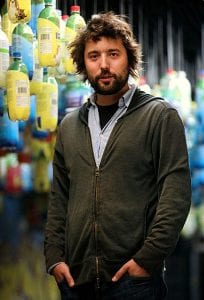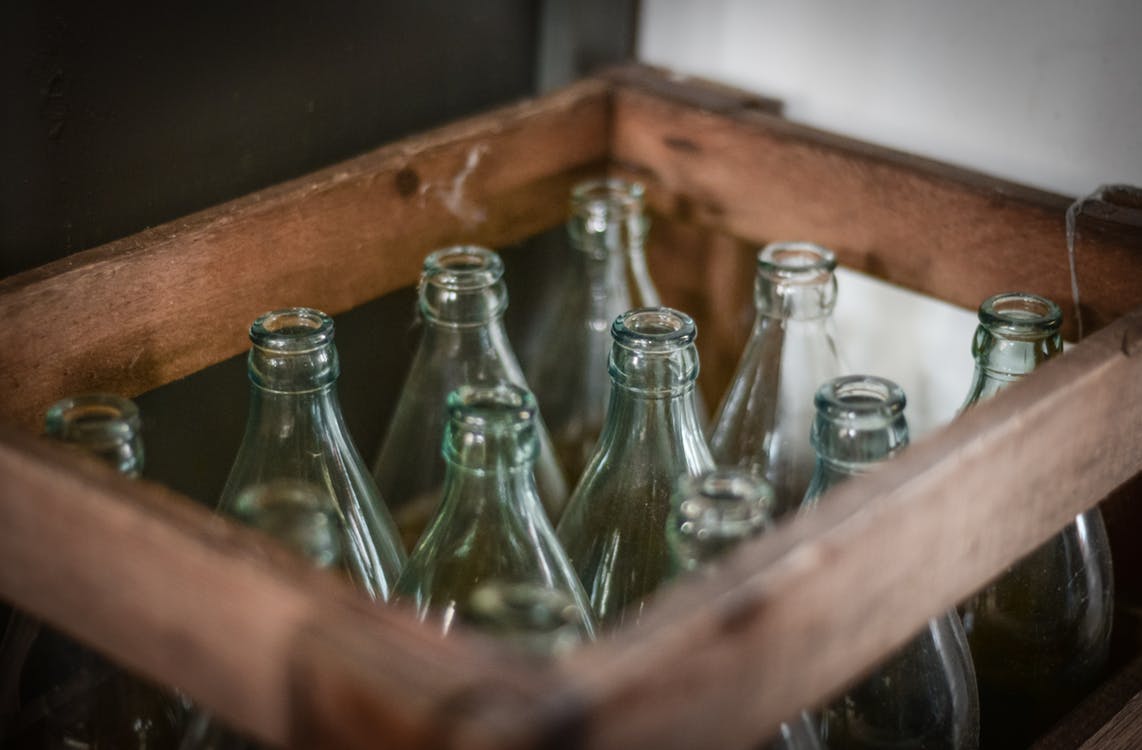Tom Szaky’s new shopping platform, Loop, is being hailed as our savior from single use plastic waste, but real green solutions don’t scale up that well.
There’s a new eco-shopping service in town! Or rather, there soon may be, especially if you live in New York or Paris. It’s called Loop, and it’s aimed at consumers who are sick of wasteful, single use containers.
Here’s the premise. The grocery items we buy are often packaged in disposable plastic containers, whether it’s deodorant or pints of Häagen-Dazs. That plastic piles up over time and through the actions of millions (or, nowadays, billions) of consumers. China won’t take any more recyclables, oceans are choked with plastic waste, and something’s gotta give. Tom Szaky, the founder and CEO of TerraCycle, Inc., thought that single-use plastic packaging was an idea past its sell-by date. Szaky partnered with major brands to develop packaging that can be reused, ideally, a hundred times. Loop, a new shopping platform, is the result of these efforts, and media outlets from TreeHugger to The Wall Street Journal think he’s on to something big.
But is he?
Szaky’s heart is certainly in the right place. He started TerraCycle in 2001 after visiting some friends over fall break at Princeton. Seeing his friends cycle their kitchen scraps through their worm bin and use the castings to fertilize their houseplants gave Szaky the idea to commercialize the nutrient loop. He emptied his bank account, maxed out his credit cards, and borrowed money from family and friends to build giant worm bins to digest waste from Princeton’s cafeteria. Then he filled used soda bottles with the resulting liquid, hoping to market it as a natural fertilizer. A quick cash infusion from an angel investor enabled him to go commercial in 2004, even though it was beyond difficult to find other backers willing to fund a business that made its product from waste.

From there, Szaky and TerraCycle expanded into closing the loop on other waste streams. In 2008, TerraCycle asked Newsweek readers to send in used plastic bags from Target, and over 47,000 people responded. TerraCycle upcycled the plastic into reusable tote bags. By 2014, TerraCycle was collecting hard-to-recycle waste (like cigarette butts, coffee pods, and three-ring binders) worldwide, while looking for businesses to recycle the collected waste.
With Loop, though, Szaky’s reach may have exceeded his grasp. The “milkman” model on which Loop is based really is inspirational, but the original idea of having the milkman pick up emptied glass bottles and refill them for next week worked because it was intensely local. Today, not only are most densely populated urban centers (the sort of places where the Loop concept is most likely to gain traction among a critical mass of consumers) far from dairies, they’re also far from the deodorant and ice cream factories where the Loop containers are headed for refill. If the goal is a no-waste system, one must, to be ethical and accurate, count all the resources that go into it, including the fuel and wear on the UPS fleet that will pick up and drop off the “reusable totes” filled with Loop-packaged products.
What’s more, the economic barrier to entering the Loop, so to speak, is relatively high. Companies must foot the bill for developing the reusable containers, which Szaky says is in the low six figures each. (Perhaps that’s why we only see giant national brands making the leap, like Proctor & Gamble, not the mom-and-pop local outfits that would make this a more sustainable system or which would appeal more to the sort of consumer Loop wants to woo.) Although the products should sell for prices comparable to the local grocery store, consumers would have to pony up a deposit of $1 to $20 per container, which could be offputting to those with barely livable incomes or who bristle at even Michigan’s 10-cent bottle deposit.
None of this is likely to concern the folks at the World Economic Forum in Davos, the gathering where the world’s rich and powerful travel in ever-bigger private jets to talk about climate and inequality. That’s where Szaky unveiled the new Loop shopping platform this year. Perhaps these movers and shakers, well-heeled and apparently unfazed by actual inequality or their own threat to our collective environment, will adopt Loop when it expands into their territories. Maybe those sleek, stainless steel deodorant pods will look stunning and oh-so-ecological on their marble vanities.
For the rest of us, who may or may not buy into Szaky’s scheme, there are still real solutions. For example, use the bulk bins at the grocery store and bring your own containers. Support local farmer’s markets or buy a CSA (community supported agriculture) share. See if your community has opportunities to creatively use otherwise wasted resources locally, like this pay-what-you-want restaurant in London that feeds the affluent and hungry alike with food diverted from landfills. Decide not to buy or use as much plastic to begin with, like these communities in Florida. Maybe even bring back the milkman for real.
TerraCycle’s original mission of turning cafeteria waste into fertilizer, packaged in used containers? That was truly green. Transporting Nestlé’s empty, dirty Häagen-Dazs pods from California to the East Coast for washing and refill? Maybe not so much.
Related: Straw Man, or the Last Straw?


Join the conversation!